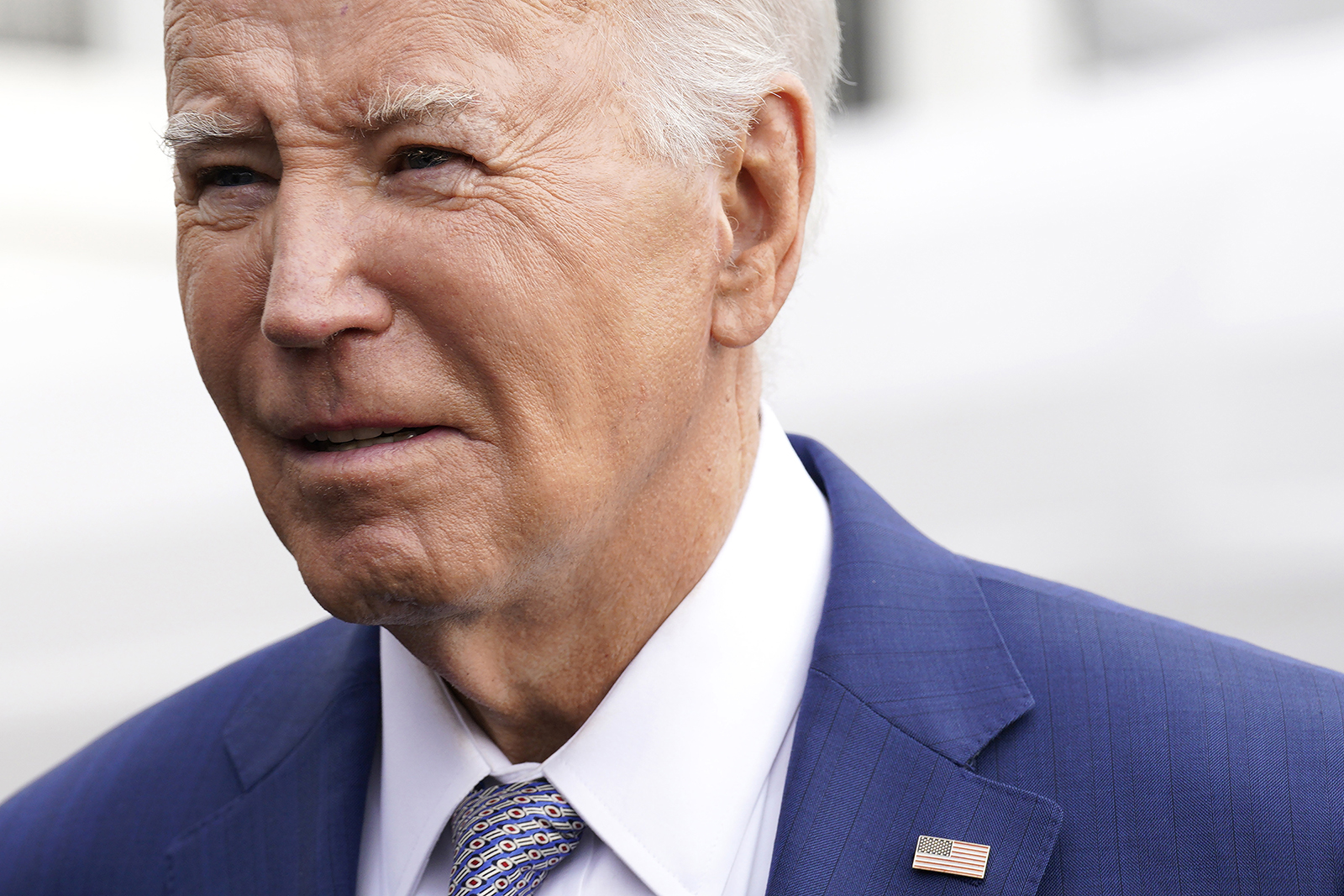(RNS) — Before she was elected to Georgia’s House of Representatives two years ago, Ruwa Romman, the first Palestinian American to hold any office in Georgia, campaigned for Joe Biden in 2020 in Atlanta’s northeast suburbs, which she now represents.
Today, Romman, who is also the first Muslim woman to win a seat in Georgia’s statehouse, said her neighbors with family in Gaza are scared, scrambling to get their loved ones out of the territory and feeling betrayed by Biden’s embrace of Israel in the war against Hamas.
“This isn’t like a group of people that didn’t get a policy they wanted or throwing a temper tantrum. This is a situation where people feel like, “Hey, you are directly contributing to my loss, my very personal loss,” said Romman.
Many of her constituents, like Muslim voters across the country, have already announced they won’t support the president in 2024, with some joining in active campaigning against his reelection, known as the Abandon Biden movement. These voters, who, for the most part, voted for Biden in 2020, have pledged to make him a “one-term president.”
Soon after the war began, Biden’s popularity among Muslim and Arab American voters fell, from 59% in 2020 to 17% in October 2023. As more than 30,000 Palestinians have been killed since October, more have joined the movement, antagonized by President Biden’s refusal to advocate for a cease-fire.
They are backed by a growing number of Americans who think the president should have a more balanced approach to the conflict. According to an Arab American Institute poll, 57% of Americans think the “U.S. should act as a fair and impartial broker between Israelis and Palestinians.”

President Joe Biden speaks to the media before boarding Marine One on the South Lawn of the White House, Thursday, Jan. 18, 2024, in Washington. (AP Photo/Yuri Gripas)
But the Abandon Biden movement goes beyond airing opinions. In early December, Muslim leaders in eight states, including the crucial swing states of Georgia, Michigan, Arizona, Wisconsin and Pennsylvania, began demanding that Biden push Israel to agree to a cease-fire, threatening to boycott him in the next election if he didn’t. More recently they have vowed that nothing will convince them to support the president and expanded the campaign to all 50 states.
“We would have considered not abandoning Biden maybe 10,000 Palestinians ago, but right now, it is too late,” said Khalid Turani, a Palestinian American member of the movement from Michigan, during a press conference.
The movement’s leaders point out that they are not calling on voters to support Donald Trump but hope they will support a third-party candidate or abstain. Hassan Abdel Salam, an associate professor of sociology at the University of Minnesota and the movement’s president, said further that if Trump were elected, the group would support a Democratic majority in Congress to fight his agenda.
The Abandon Biden leaders are trying to foster partnerships with “Black, Hispanic, and young progressive allies” who were part of the coalition that elected Biden in 2020 and who, according to recent polls, are losing faith in the president over his Israel policy.
Salam said the Abandon Biden movement has restored a sense of pride to Muslim American voters who feel the Biden White House has shown them respect. While he doubts that either the administration or the campaign views the Abandon Biden movement as a credible threat, he takes it as a sign of their being disconnected from their voters.
“It’s so strange; it has something to do with the echo chamber,” he said about the disconnect.
In her district, Romman has tried to engage voters on the issue of Gaza, conversations she said she hoped are happening elsewhere in the Democratic Party, particularly at the national level. “I’m hoping that that changes in the future, as more and more people reach out to their elected officials in the new year,” she said.

Smoke rises following an Israeli bombardment in the Gaza Strip, as seen from southern Israel, Saturday, Dec. 16, 2023. (AP Photo/Ariel Schalit)
It’s not clear how much Muslim Americans can impact the outcome of the 2024 presidential race. Youssef Chouhoud, an assistant professor of political science at Christopher Newport University, has compiled data from various sources — the 2020 U.S. Census and U.S. Religious Census, as well as the Arab American Institute — to quantify the effect of mass abstention or third-party votes from Muslim, Middle Eastern and North African voters.
He argued that even if the Muslim and Arab Americans’ share of the total U.S. population is relatively small — 3.5 million, according to the 2020 Census, their voting power is amplified by the Electoral College.
“Under that system, swing states are really what it comes down to. And it turns out that Muslims and Middle Eastern and North Africans have an outsize influence in a number of swing states,” said Chouhoud.
According to his findings, if even half of Muslim and Arab American voters in Arizona and Georgia alone fail to vote for Biden, it would be enough to swing those states to his opponent in November.
But for Chouhoud, the drop in support for Biden among these communities can’t be attributed solely to the Israel-Hamas war. Before it became a salient issue in the campaign, voters from these communities had already distanced themselves from the Democratic Party over disagreements on cultural issues, such as debates over inclusive school curriculums.
Soon after Oct. 7, the Muslim American advocacy group Emgage began to track Muslim Americans’ intentions in the next election. In a survey released in November, only 5.2% of Muslim Americans said they would vote for Biden in 2024.
But counting Muslim votes alone may not capture the risk Biden has taken in backing Israel so strongly. He may also lose volunteers from the community who, like Romman, helped deliver voters in his 2020 campaign.
On Oct. 13, a week after Hamas’ attack and a month before Virginians went to the polls to elect a new governor and representatives to their statehouse, Mohamed Gula, executive director of Emgage’s Virginia chapter, chided state Democrats for sending out a statement that made no mention of the 1,500 Palestinians who had already died in Gaza.
“What should I tell the 250,000 registered Muslims in Virginia while door knocking & Phone banking? For your candidates?” he tweeted. “Do better.”





